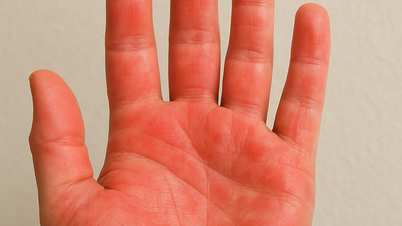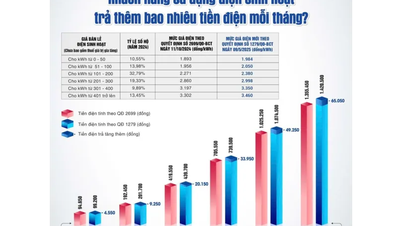Slow weight loss results in more sustainable results, better resting calorie burn and metabolic efficiency.
Experts generally recommend losing 0.5-1 kg per week, which is defined as slow weight loss. Rapid weight loss is defined as losing more than 1 kg per week.
A study of 200 people was randomly assigned to either a rapid weight loss plan for 12 weeks or a slow weight loss plan for 36 weeks, with a goal of losing 15% of their body weight.
The rapid weight loss group followed a very low-calorie diet using smoothies, nutrition bars and soups or broths three times a day. The slow weight loss group followed the Australian Healthy Eating Guidelines , aiming to eat 500 fewer calories than usual, plus one or two meal replacements.
About 50% of people in the slow-loss group and 81% of people in the fast-loss group lost 12.5% of their body weight during the program. They then followed a weight-maintenance diet for 33 months (2 years and 9 months).
After three years, 76% of the people in the slow-loss group had regained the weight they lost. This rate was similar to that of the fast-loss group. So, no matter what method they used, they would gain the weight back.
Another study of 101 postmenopausal women found that rapid weight loss resulted in better results than slow weight loss over three years. However, there are other factors to consider when losing weight, such as changes in body composition and bone loss.
Although some studies show similar levels of body weight loss with the two methods, slow weight loss produces better results than rapid weight loss in terms of metabolism or resting calories burned.

Measure waist circumference to check weight loss effectiveness. Photo: Freepik
The fast and slow weight loss groups did not differ in fat-free mass or muscle mass loss. However, slow weight loss resulted in more fat burning, resulting in a better fat-to-muscle ratio. Slow weight loss appears to be beneficial for bone density, as rapid weight loss increases the rate of bone loss, putting some people at risk for brittle bones or osteoporosis.
Studies show that it doesn't matter which diet you follow, for example, a moderate or high protein diet, a low or high carbohydrate diet, or a low or high fat diet. All diets produce similar results.
The same thing can happen with popular calorie-cutting methods, like intermittent fasting. Research shows that such diets are no better than previous options, since our bodies are very good at resisting weight loss.
When you want to lose weight, consider your metabolism. When you lose half your weight, your metabolic rate, or the amount of energy you burn at rest, will be lower.
Keeping your resting metabolic rate high is essential for weight loss. Research also shows that losing weight slowly is better at maintaining your resting metabolic rate than losing weight quickly. Additionally, a weight loss program should include exercise rather than focusing solely on diet.
Next, consider the side effects. While a strict diet may produce quick results, studies have shown that it can cause side effects such as an increased risk of gallstones, nutritional deficiencies that lead to weakened immunity, fatigue, and decreased bone density. A severely restrictive diet can make it difficult to meet your body’s nutritional needs.
The sustainability of your weight loss efforts is the next thing to consider. Many diets designed to lose weight quickly restrict or eliminate foods that are essential for long-term health. For example, diets that eliminate carbohydrates, but carbohydrates from whole grains, are essential nutrients, help with weight loss and prevent disease.
Long-term weight loss also depends on obesity research, performed under the supervision of a qualified health professional, and gradual lifestyle changes including diet, exercise, and sleep patterns to form lifelong healthy habits.
Chile (According to Science Arlert )
Source link



![[Photo] General Secretary To Lam meets and expresses gratitude to Vietnam's Belarusian friends](https://vphoto.vietnam.vn/thumb/1200x675/vietnam/resource/IMAGE/2025/5/11/c515ee2054c54a87aa8a7cb520f2fa6e)


![[Photo] General Secretary To Lam arrives in Minsk, begins state visit to Belarus](https://vphoto.vietnam.vn/thumb/1200x675/vietnam/resource/IMAGE/2025/5/11/76602f587468437f8b5b7104495f444d)
![[Photo] General Secretary To Lam concludes visit to Russia, departs for Belarus](https://vphoto.vietnam.vn/thumb/1200x675/vietnam/resource/IMAGE/2025/5/11/0acf1081a95e4b1d9886c67fdafd95ed)


























![[Photo] National Assembly Chairman Tran Thanh Man attends the Party Congress of the Committee for Culture and Social Affairs](https://vphoto.vietnam.vn/thumb/1200x675/vietnam/resource/IMAGE/2025/5/11/f5ed02beb9404bca998a08b34ef255a6)































































Comment (0)